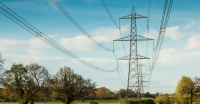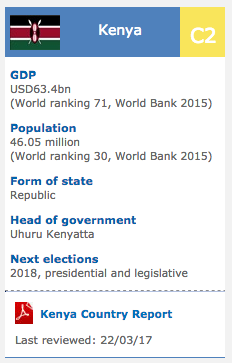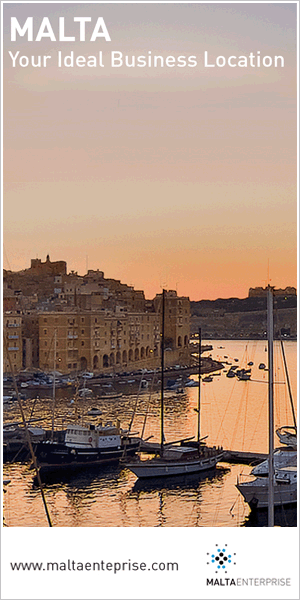Albania: Outlook for 2013-14
2012/12/07

The country (Albania) is situated in Southeastern Europe and is bordering the Adriatic Sea and Ionian Sea, between Serbia and Greece and Montenegro.
It has borders with FYR Macedonia for 151km, Greece for 282km, Montenegro for 172km.
Land in Albania is generally mountains and hills; tiny plains along coast.
Albanian land covers an area of 28748 km² .
The climate is mild temperate and cool, cloudy and wet in winters. With hot, clear, and dry summers. Inside the country is cooler and wetter.
Albanian(s) speak Albanian (official - derived from Tosk dialect), Greek, Vlach, Romani, Slavic dialects.
Outlook for 2012-13
Core Views Albania's relatively low level of trade and financial integration with Western Europe will not protect its economy from the marked deterioration that has occurred in eurozone macroeconomic and financial market conditions over the past few months.
The eurozone appears to have slumped into recession, with Italy, Albania's largest export market, a focus of the region's current woes.
The formation of a new centre-right party which looks set to receive the backing and leadership of President Bamir Topi adds new dynamism to Albania's political landscape and improves the electoral chances of the opposition Socialist Party.
Nevertheless, the bigger issue for Albania will be the conduct of upcoming elections, rather than their actual result.
Another controversial election would add to the damage already done to the country's EU accession ambitions.
Key Risks To Outlook Albania's strong economic and financial links to Greece and Italy remain a key risk to our outlook, even beyond the extent to which we have factored this exposure into our forecasts.
On top of being the source of economically significant remittance inflows, Albania's commercial banking sector is dominated by Greek subsidiaries.
An uncoordinated credit event in Greece would put those parent banks under pressure, possibly leading to a sharp withdrawal of credit from their peripheral operations.
The political scene
The Socialist Party of Albania (SPA), made real gains in the local elections held on May 8th. The SPA captured almost amount the large cities, but the DPA-led block retained its hold in the smaller communities, and won a larger share of the popular vote. The position of the SPA's leader, Edi Rama, came under threat when his re-election—by just ten votes—as mayor of the capital, Tirana, was challenged by the DPA. In May the prosecutor-general filed corruption charges against Mr Meta.
Economic policy
The budget deficit expanded to Lk11.8bn (US$116m) in the first quarter of 2011 as the government front-loaded capital investment ahead of the local elections. Parliament adopted a wide-ranging fiscal amnesty in April. The Ministry of Finance is planning to replace the flat-rate 10% corporate benefits tax with rates set at 10%, 20% and 30%. In March the Bank of Albania (BoA, the central bank) raised the repo rate by 25 basis points, to 5.25%, to combat inflation.
The domestic economy
Real GDP grew by 5.4% year on year in the final quarter of 2010, taking full-year increase to 3.9%, according to the Institute of Statistics. Increase, which is likely to be revised down, was driven by industry, with output up by 20%. Inflation in the first quarter accelerated to 4%, reaching the top of the BoA's target band.
Foreign trade and payments
Merchandise exports soared by 46% year on year in January-March and imports rose by 16%, with the trade deficit shrinking by 1%, to Lk64bn. The current-account deficit in 2010 shrank to 12.4% of GDP from 15.6% in 2009.
Outlook for 2013-14
The ruling coalition of the centre-right Democratic Party of Albania (DPA) and the centre-left Socialist Movement for Integration (SMI) has a small majority, but is expected to last until the next election, due in mid-2013.
The opposition Socialist Party of Albania (SPA) has a good luck of returning to power after two election defeats, especially if the current economic downturn continues to erode the government's popularity.
Albania has a good luck of becoming an EU candidate in the near next, but the Economist Intelligence Unit believes that the opening of EU accession talks will be conditional on Albania adopting further improves.
The government faces the challenge of bringing about fiscal consolidation while attempting to stimulate economic increase.
We estimate that real GDP increase in 2012 will slow to 0.7% from 3% in 2011. We estimate that increase will accelerate to an average of 2.5% in 2013-14, benefiting from a modest recovery in the euro zone.
The current-account deficit is estimate to narrow from an estimated 11.7% of GDP in 2012 to an average of 10.8% in 2013-14.
Review
In its new annual evolution statement, published on October 10th, the European Commission recommended that Albania should be granted EU candidate status by EU members-subject to certain conditions.
In September parliament voted to restrict the immunity from prosecution enjoyed by lawmakers and other officials, making it easier to combat corruption, and complying with the EU's requirements.
The national-owned oil producer, Albpetrol, was sold in October for EUR850m (US$1.1bn) to a US-based consortium among-owned by an Albanian oil tycoon, Rezart Taci.
The Bank of Albania (BoA, the central bank) cut the key interest rate to a historical low of 4% on July 25th to stimulate economic activity.
Real GDP grew by 2% year on year in the second quarter, rebounding from a contraction of 0.2% in the first quarter.
In January-August exports rose by 5.9% year on year and imports shrank by 1.7%. The trade deficit was Lk205.3bn (US$1.87bn), 6% smaller year on year.
Sovereign risk
Stable: We estimate that election-related spending will cause the budget deficit to widen to 3.9% of GDP in 2013 (from an estimated 3.1% in 2012), before tighter fiscal policy and increased tax receipts help to narrow it to 2.7% in 2014. Public debt/GDP is estimate to edge above 60% in 2013.
Currency risk
Stable: In 2013-14 the lek will be supported by relatively high local-currency interest rates and foreign-currency remittances from Albanians working abroad, which should increase as euro zone increase returns and then accelerates.
Banking sector risk
Stable: The central bank could further lower the repo rate to stimulate lending in leks (which accounts for only around one-third of total lending) to improve monetary policy transmission and mitigate currency risk.
Political risk
The opposition Socialist Party of Albania (SPA) has a good luck of returning to power in 2013. Albania is expected to become an EU candidate in the near next.
Economic structure risk
The current-account deficit is large. Dependence on Italy is constraining exports.
Related Reports:
- Related Articles

Climate change laws around the world
2017/05/14 There has been a 20-fold increase in the number of global climate change laws since 1997, according to the most comprehensive database of relevant policy and legislation. The database, produced by the Grantham Research Institute on Climate Change and the Environment and the Sabin Center on Climate Change Law, includes more than 1,200 relevant policies across 164 countries, which account for 95% of global greenhouse gas emissions.
Brexit negotiations should treat energy as ‘special case’
2017/05/14 There are strong practical reasons why the UK and EU should treat energy as a appropriate case during Brexit negotiations, argues a new statement. The statement, jointly authored by Chatham Home, the University of Exeter and the UK Energy Research Centre (UKERC), says finding common ground on energy during the Brexit negotiations would benefit both the UK and remaining EU27, while compromise may be relatively easier to achieve than for other areas.
- Albania News
-
- AFGHANISTAN: UNWTO: International tourism – strongest half-year results since 2010
- ALBANIA: US LNG exports make European market more competitive
- ALBANIA: European Union to support Albania's public administration reform
- ALBANIA: European Union to support Albania's public administration reform
- AFGHANISTAN: Higher earning Why a university degree is worth more in some countries than others
- ALBANIA: Albanian Activists Mull Lawsuits to Stop Power Plants
- Trending Articles
-
- SOUTH AFRICA: Nigeria and South Africa emerge from recession
- BAHRAIN: Bahrain issues new rules to encourage fintech growth
- ARUBA: Director of Tourism Turks and Caicos after Irma: Tourism, visitors, hotels current status
- ANGOLA: Angola: Elections / 2017 - Provisional Data Point Out Qualified Majority for MPLA
- WORLD: How fair is our food? Big companies take reins on sourcing schemes
- CHINA: Russian firm seals energy exploration deal to drill South African shelf












